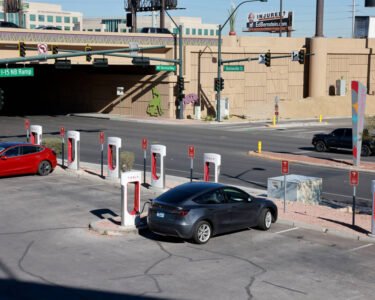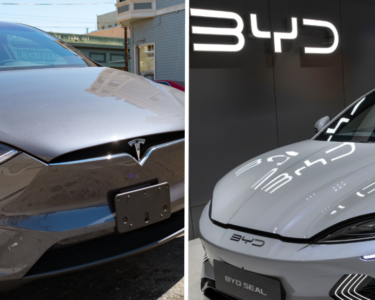As the world shifts gears towards a future dominated by electric vehicles (EVs), the automotive landscape is undergoing its most significant transformation since the advent of mass production. This transition, while promising cleaner air and a reduction in carbon emissions, casts a shadow over the United Kingdom, where the automotive industry faces a pivotal challenge. At the heart of this evolution is a paradox: electric cars, with their sleek designs and superior performance, are as desirable as the latest high-end smartphones, yet their exorbitant costs place them out of reach for the average consumer.
The High Cost of Going Green
The allure of electric vehicles is undeniable. With zero emissions at the point of use, they offer a tantalizing glimpse into a future free from the smog and pollution that have long plagued our cities. Yet, this promise comes with a hefty price tag. The cost of electric vehicles remains the primary barrier to widespread adoption, akin to the early days of mobile technology when only the affluent could afford the latest gadgets. This economic hurdle is particularly daunting for the UK, as it strives not only to meet ambitious environmental targets but also to maintain its stature in the global automotive market.
Despite the challenges, there is an undeniable momentum behind electric vehicles. Countries like India are making significant strides, with EV sales projected to soar in the coming years. These developments underscore the urgent need for the UK to navigate the transition to electric vehicles carefully, balancing environmental aspirations with economic realities.
The Global EV Landscape and the UK’s Position
The automotive industry is no stranger to competition, and the rise of electric vehicles has introduced new players to the field. China, in particular, has emerged as a formidable force, with its manufacturers producing EVs that combine affordability with advanced technology. This shift has not gone unnoticed in the UK, where the domestic automotive sector grapples with the dual challenges of transitioning to electric vehicles and competing on a global stage.
The situation is compounded by the cost and complexity of electric vehicle production. High-quality batteries, a crucial component of EVs, are expensive to manufacture, and the raw materials required are subject to volatile market prices. Furthermore, the infrastructure needed to support a widespread shift to electric vehicles, such as charging stations, remains underdeveloped. These factors combine to create a daunting obstacle course for the UK’s automotive industry, challenging its ability to compete effectively in the burgeoning EV market.
Looking Ahead: Challenges and Opportunities
While the road ahead may seem fraught with challenges, there are also opportunities for the UK to carve out a niche in the electric vehicle market. Innovation in battery technology and the development of more efficient manufacturing processes could help reduce costs and make EVs more accessible to a broader audience. Moreover, by investing in the necessary infrastructure and fostering a supportive ecosystem for electric vehicles, the UK can position itself as a leader in the transition to a cleaner, more sustainable mode of transportation.
The automotive industry is at a crossroads, and the decisions made today will shape the landscape for decades to come. The transition to electric vehicles presents a complex scenario, fraught with economic implications for countries like the UK. However, by embracing innovation and prioritizing sustainability, the UK has the potential to navigate these challenges successfully and emerge as a key player in the electric vehicle revolution.




